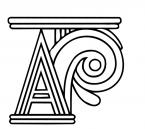
The Department of Antiquities was established as a governmental organisation in 1935, the same year that the new Antiquities Law was enforced. The Antiquities Law sets strict rules aiming towards the protection of the island's cultural heritage.
The Department of Antiquities is responsible for the general management of the archaeological heritage of Cyprus. Its main areas of activity and responsibility are: the conducting of systematic and rescue excavations and archaeological surveys; the establishment, management and operation of archaeological museums; the conservation, restoration, protection and promotion of archaeological monuments and sites and of moveable archaeological objects. The activities of the Department of Antiquities are published in its two annual publications, namely the Report of the Department of Antiquities, Cyprus and the Annual Report of the Department of Antiquities, Cyprus.
The protection of Cyprus’ cultural heritage and the fight against illicit excavations and illicit trafficking of antiquities are issues which are extremely high on the Department of Antiquities’ priority list. Especially due to Cyprus’ ongoing political situation, museums, monuments and sites have been neglected, destroyed and looted and moveable antiquities have been illicitly trafficked all over the world.
The Department of Antiquities’ aim is to achieve long-term results in the policies that are formulated. Apart from European and International legislation, the Republic of Cyprus’ national legislation, namely the Antiquities Law, is an extremely powerful tool in the efforts to combat the illicit trafficking of cultural goods. As an example, amendments have been made to the Antiquities Law to further restrict the use of metal detectors. Furthermore, the Republic of Cyprus has concluded bilateral agreements with third countries to impose import controls on cultural goods which have been unlawfully exported from their country of origin (USA, China, Government of the Russian Federation, Palestinian National Authority, Switzerland, Israel). The Memorandum of Understanding between the Republic of Cyprus and the USA is one such agreement which greatly enhances the protection of Cyprus’ cultural heritage.
The Department of Antiquities’ close cooperation with other government bodies, such as the Department of Customs and Excise, the Cyprus Police and the Legal Services but also with the Church of Cyprus and with other non-governmental institutions and organizations, strengthens the continuous efforts to protect the island’s heritage. The Department of Antiquities also aims towards raising awareness and informing the public on issues related to the protection of cultural heritage and the return of cultural goods to their place of origin. This is achieved in many ways, from the issuing of informative pamphlets and posters distributed to museums, hotels, airports harbors/ports and other public places to the organisation of social events at museums and archaeological sites with public participation.
At a more practical level the Department of Antiquities systematically follows the auction and sale of Cypriot antiquities on the internet. All Cypriot antiquities that are part of these auctions and/or sales are filed and checked against the records of antiquities that are part of both government and private collections that remained in the occupied areas post 1974. As a step to further develop the fight against illicit trafficking is also the Department's long-term digitisation program which involves the digitisation of all listed monuments (with the application of a Geographical Information System) and moveable antiquities that are stored or exhibited in Museums throughout the island.
The Department of Antiquities, in collaboration with the Church of Cyprus and the Cyprus American Archaeological Research Institute (CAARI), organised a 2-day Workshop on October 14-15, 2011, entitled ‘Protecting the Cultural Heritage of Cyprus: Joining Efforts in preventing the illicit trafficking of cultural heritage’.


